 For many, there is an overwhelming sense of anxiety that goes with their hunt for the perfect job.
For many, there is an overwhelming sense of anxiety that goes with their hunt for the perfect job.
Sending out endless resumes, not hearing back, or going to an interview and not getting the job, and meanwhile, time marches on. Bills stack up, there’s pressure from the family and, of course, you are trying to manage your own internal angst.
If you are feeling overwhelmed in your job search, here are a few ideas to help you make the job seeking process more manageable:
1. Focus on the jobs that you are qualified for.
Resist the temptation to send out your resume to every job posting that seems like ‘the perfect fit.’
| Successful job seeking routines rely less on the quantity of jobs you apply to but more on the quality of the jobs you apply to. |
I was working with a job seeker earlier this year and she was frustrated that she was not getting calls back from the jobs for which she was applying. I looked at the jobs she was applying and told her, “The reason you are not getting interviews is because you are applying for jobs that you are not qualified for.” She told me, “But I know I could do those jobs if someone would only give me a chance!”
She’d fallen into the trap of applying for positions where she may have matched 20% of the qualifications, but there was no way she could compete against the professionals who had 80% of the qualifications.
I understand.
Looking for a job can be a great adventure and you might feel as if you now have the opportunity to do what you really have wanted to do all your life. However, if you want to find a job quickly, focus on your skills and only apply for the jobs where your skills, background, experience and accomplishments match at least 75–80% of the requirements outlined in the posting.
If you have the time to go through a ‘reinvention’ process that allows you to attend school to learn new skills, or start at a lower rung to get the experience needed to move up in a different career, then that is a valid and legitimate goal. However, if you are looking for a job in the very near future, focus on the skills that will match the jobs you are applying.
2. Develop a job-seeking routine.
One of the most difficult things about losing a job, is that your routine is completely destroyed.
Think about it. When you are working, you follow a pretty regimented routine throughout your day. You wake up, have breakfast, take a shower, get dressed, go to work, eat lunch, come home, etc., etc. There are certainly other routines you are used to, the task and responsibilities of your job, the social life routines of work and, of course, the routine of getting a paycheck.
But think of it this way: As a job seeker, you have a job. You are the Chief Marketing Officer for…..YOU!
 Saying that, you should develop a routine that you follow regularly. The routines must be regular tasks and efforts that are effective and that you feel are progressing your job search.
Saying that, you should develop a routine that you follow regularly. The routines must be regular tasks and efforts that are effective and that you feel are progressing your job search.
Too many people I know follow a routine of sitting in front of their computers all day randomly sending out resumes to job postings on online job boards. Shot-gunning resumes and cover letters to dozens of jobs a day is not a productive routine and will quickly lead to frustration.
Online job boards are helpful in identifying opportunities, but the routines related to actually applying for positions are much more involved.
Successful job seeking routines rely less on the quantity of jobs you apply to but more on the quality of the jobs you apply to.
I recommend spending only about 20% of your job seeking routine on job boards identifying new job opportunities.
Once you have identified the opportunities, spend your time doing research on the company and the principals of the organization. Make sure that this job and the organization is an appropriate for you. Look on LinkedIn and determine if you have any connections to the company, and if so, try and connect with them. When you feel you have a good sense of the organization and the position and feel that your background, skills and experience are a match, then spend begin customizing your resume and cover letter. Remember your resume and cover letter should do a good job of describing WHY you are a match and why your background and skills would be valuable to the organization and the position you are applying.
3. Incorporate other job-seeking activities into your routine.
Job seeking can be a very lonely process.
Some job seekers quarantine themselves at their home, sitting in front of their computer for hours on end. They have very little interaction with other people, they get bored and the stinking thinking (the voices in your head that constantly remind you about your struggles to find a job!) infiltrates their minds. This is also when the anxiety gremlins can really become a menace to your job search and can quickly lead to job-seeking depression.
 It doesn’t have to be this way.
It doesn’t have to be this way.
Instead, think about getting out from behind your computer and step outside your home!
There are numerous support groups available through a variety of sources. Every county in Colorado has a Workforce Center that provides resources including resume building, interview coaching, and seminars to help keep you motivated. Dress for Success is a local nonprofit that assists people in their job search and organizations like the Mi Casa Resource Center also have classes to help individuals in their job search.
Also, another aspect of your job search is networking. Reaching out to friends, former bosses, colleagues, clients, vendors – anyone you know that can help in your job search.
Make cold calls to companies or to people who you have identified as prospects that might help you land a job. Yes, it might seem awkward at first, and if so, write out a script that can help you stay focused and on message. Remember, you are the chief marketing officer and salesperson for yourself! Try and set up ‘informational interviews’ that give you face time with someone and remember, always make an ‘ask’! An ask can be anything from, “Do you have a job that fits my qualifications,” to “Can you give me some names of people you think I should be talking to?” It might also be a question like, “Can you introduce me to your HR person so I can drop my resume off with them,” or “Can you give me some advice about my resume and if you think it is making a strong enough case for me?”
Bottom line – If you are feeling as if you are in a rut and anxiety is overwhelming your job search, try some new tactics. Focus! Spend quality time applying for jobs that are defined by a laser-sharp focus that concentrates on the value your skills and experience brings to an employer. Don’t fall into the false hope of randomly sending out dozens of resumes to job postings on online job boards. Instead, develop a routine is based on activities that engages you in the job seeking world and emphasizes the quality jobs that match your skills and experience.









